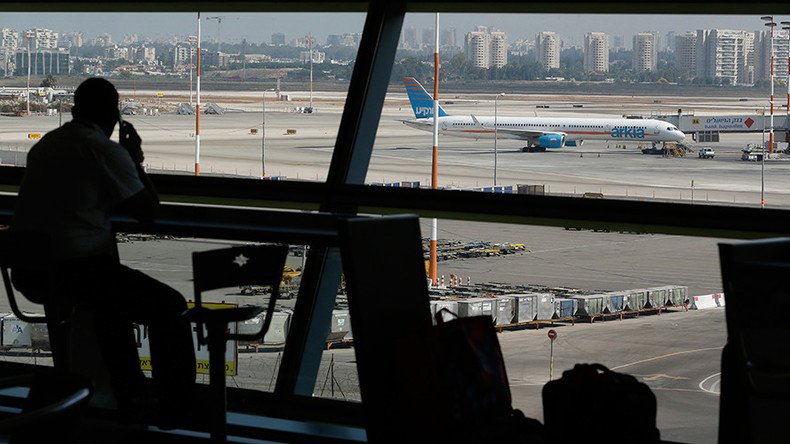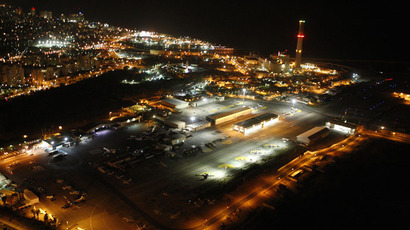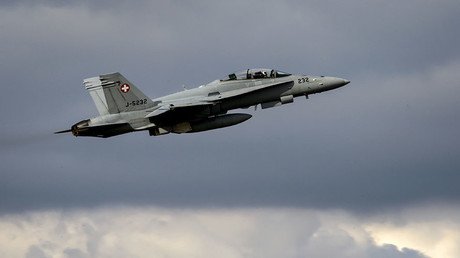Israeli journo plants fake bombs on 12 planes to expose ‘world’s safest’ airport

An undercover journalist proved Tel Aviv airport security lax when he planted fake “bombs" on 12 passenger planes while working as a cleaner on a friend’s ID. In response, the airport filed a police complaint against the man for “impersonating a public employee.”
The journalist, David Suleiman, came to Tel Aviv's Ben Gurion air hub, viewed as one of the world’s safest airports, and said he needed a job.
“The job interview took only 2-3 minutes, I signed some documents, and that’s it. No questions, nothing. It took the security a month to do a check and to get me the highest security clearance there is in an airport.” Suleiman told RT.
After having passed security checks, he was immediately hired as a cleaner by the airport’s sanitation contractor after presenting another man’s ID card. This happened despite the fact Suleiman is bald and hardly resembled his thick-haired friend Tamir, whose ID he used.
Suleiman filmed himself while inside the planes, acting intentionally suspiciously, and placed soft-drink cans onboard, imitating the explosive device that Islamic State (IS, formerly ISIS/ISIL) claimed it used to crash the Russian Metrojet Airbus A321 airliner in October 2015.
The journalist said that he wanted to see if what was alleged by ISIS could be done again. “It was important for me to check real things and see if it is possible to do them again, that's why I used a can – of course, those cans were empty,” Suleiman told RT. “In two days I hid nine ‘bombs’: packs of cigarettes and cans.”
Suleiman says it was not hard at all to smuggle the suspicious materials in: “The moment I started to work I realized that I didn't need anything to smuggle the cans, I came with a plastic bag with the cans in it, put on the cargo pants and entered the airplane.” What’s more, the journalist even got in touch with a gun during his two day experiment:
“They let me load a weapon on my first day, it was some passenger's weapon, and I was supposed to give it to the flying attendant. So from my first day in an airport, I was given a weapon, in the runway."
Despite working as a cleaner the man also got access to the plane’s cockpit as well as the runway and other parts of the airport he was not supposed to be at.
"This, for example, was prohibited, because I had a permit to clean airplanes only. But I had the self-confidence and wanted to check how far I could go, so I wandered around the whole airport, in areas of the airports authority, their operation rooms.”
Suleiman says no one actually checked whether his permission was enough to enter all the areas. “I was allowed only to be on airplanes with this permit, and not to wander around like I did, but no one paid attention to this so I wandered around. They did not examine the permit I had."
In the interview with RT, Suleiman also disclosed what went largely under the media radar. This was his successful attempt to plant a hoax bomb inside the office of Israel’s main air company: “I managed to hide a can a ‘bomb’ inside El Al's operations room, inside the airport; they didn't mention it in the news… I hid a can in an ice cream fridge that was inside the operations room.”
According to The Times of Israel, Pini Shiff, former security chief at Ben-Gurion Airport, lamented that Suleiman’s identity “should have been discovered immediately,” while the revelations he produced are "very grave."
Shiff accused the sanitation contractor company of negligence, claiming that security procedures at the airport have now been changed.
Airport security is a crucial issue today more than ever, with recent terror acts happening both on major air transportation hubs and aboard planes. The most recent one happened less than three weeks ago, when a triple suicide bombing at Istanbul's Ataturk Airport left 41 people dead and nearly 239 wounded. The Turkish government has linked the attacks to Islamic State.














